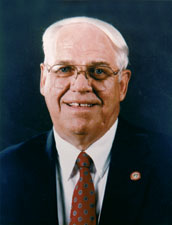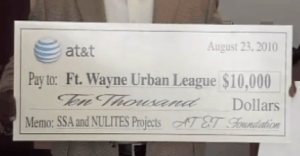 Resort communities like Wildwood, N.J. become near ghost-towns when the lucrative summer season comes to an end. But Comcast expects motel owners to keep paying for cable service even after they lock their doors and shut down during the winter.
Resort communities like Wildwood, N.J. become near ghost-towns when the lucrative summer season comes to an end. But Comcast expects motel owners to keep paying for cable service even after they lock their doors and shut down during the winter.
Now more than three dozen area independent hotel owners have told Comcast to take a hike — they are switching to satellite.
For owners, Comcast has added insult to financial injury with higher rates and new requirements for year-round service that nobody watches from October-April.
It wasn’t always this way. Comcast formerly grandfathered seasonal service into contracts for area resorts. No converter boxes were required either, making it easy to install in hotel rooms.
But no more.
The cable company claims it needed “rate consistency” in the region and raised prices. Plus, Comcast has notified hotel owners they’ll need to accommodate digital set top boxes — one to a television, something owners considered the final straw.
James “Jimmy” Johnson, owner of the 48-room Imperial 500 told the Philadelphia Inquirer he invested almost $60,000 for flat panel televisions in his rooms that Comcast now wants to slap cable boxes on. Johnson is not happy about that, because guests could walk off with them and their accompanying remote controls.
“I go through remotes like you go through underwear,” Johnson told the newspaper. Comcast charges substantial fees for lost or stolen cable equipment.
 Comcast also sought pricing changes that would charge motel owners for service per-television, instead of per-room. Several motels have multiple televisions in each room, substantially raising prices.
Comcast also sought pricing changes that would charge motel owners for service per-television, instead of per-room. Several motels have multiple televisions in each room, substantially raising prices.
As a result of the rate increases and what many owners have called the cable operator’s intransigence, they are kicking Comcast out, installing satellite television from DirecTV instead.
After an initial investment of $6,400 for the satellite equipment, many owners expect significant savings from DirecTV’s seasonal service contracts, although some guests may find regional sporting events exclusive to Comcast unavailable in their satellite-TV equipped rooms.
But for Johnson, the savings are worth it.
“I’m renting rooms; I’m not running a sports bar. . . . With computers now, you can get a lot of games on your computer, or your phone,” Johnson told the Inquirer.


 Subscribe
Subscribe






